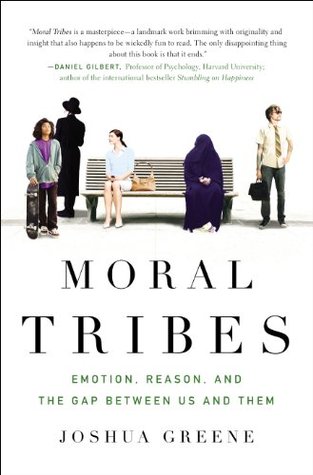More on this book
Community
Kindle Notes & Highlights
Read between
July 2 - December 5, 2020
Botvinick and Cohen argue that the brain solves this problem using a conflict monitor,
Knowing all this, you might think that evidence-based, manual-mode morality is hopeless, that thinking hard about divisive problems can only make things worse. Perhaps. Alternatively, manual-mode thinking may bring us together, provided that we use our manual modes in the right way.
The moral equivalent of confabulation is rationalization. The confabulator perceives himself doing something and makes up a rational-sounding story about what he’s doing and why.
“Rights” are nothing short of brilliant. They allow us to rationalize our gut feelings without doing any additional work.
Rights and their mirror images, duties, are the perfect rhetorical weapons for modern moral debate.
rights and duties are the modern moralist’s weapons of choice, allowing us to present our feelings as nonnegotiable facts. By appealing to rights, we excuse ourselves from the hard work of providing real, non-question-begging justifications for what we want.
If, someday, philosophers produce a theory of rights that is demonstrably true, then everything I’m saying here will go out the window. But for now, at least, arguing about rights is a dead end. When you appeal to rights, you’re not helping to resolve the issue. Instead you’re pretending that the issue has already been resolved in some abstract realm to which you and your tribespeople have special access.
What endows us with rights is not our being human, per se, but rather our having features that members of others species could, or do, have.
Whatever it is that makes people worthy of moral consideration, these things don’t all appear in one magic moment. Without a magic moment to believe in, pro-choicers simply have to draw the line somewhere, while acknowledging that the line they’ve drawn is somewhat arbitrary. There may be no better place to draw the abortion line than where we currently draw it. But if there are good arguments, based on common currency, for drawing the line elsewhere, then deep pragmatists should listen.


